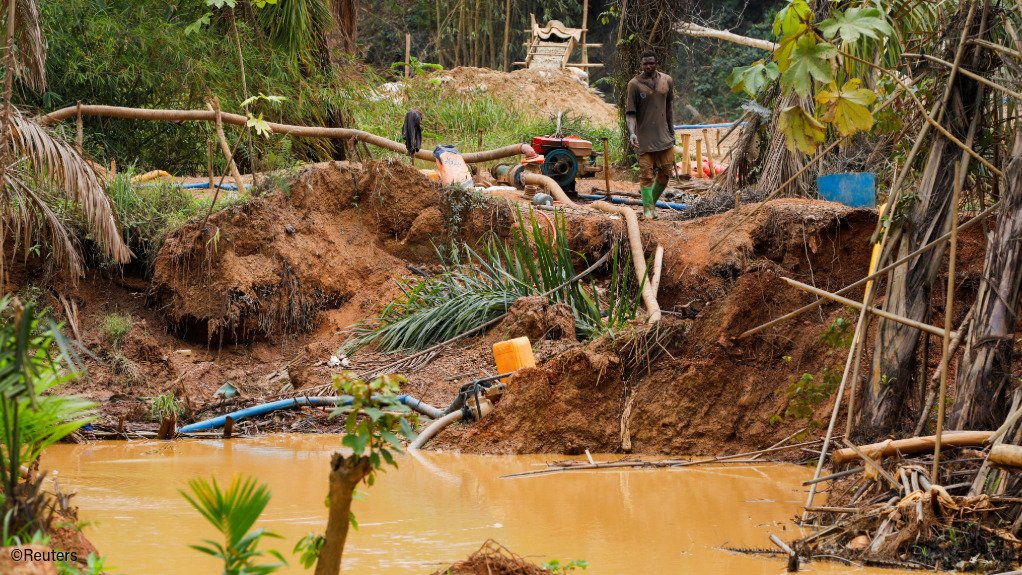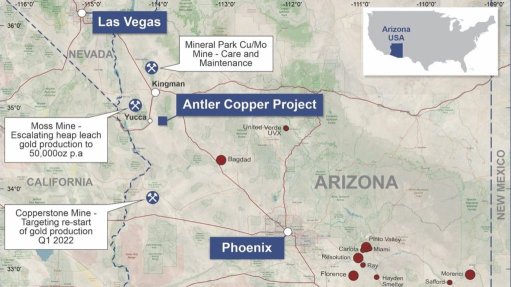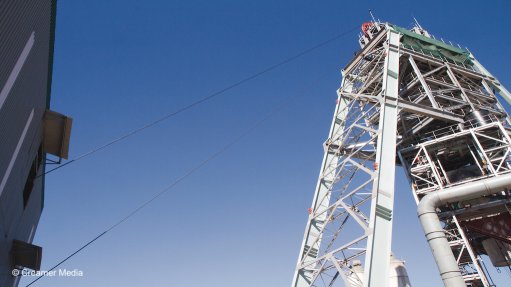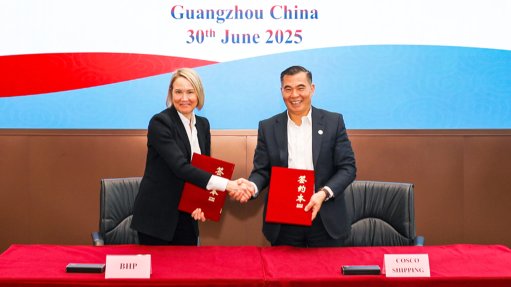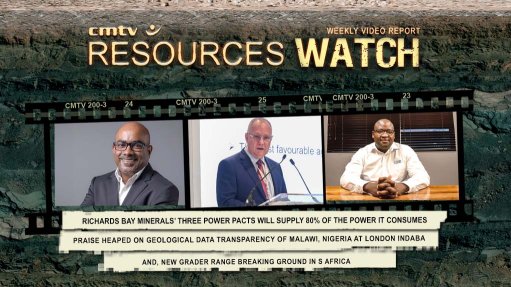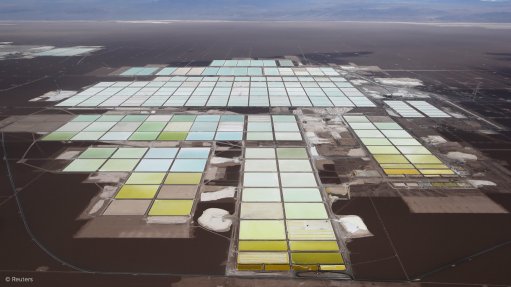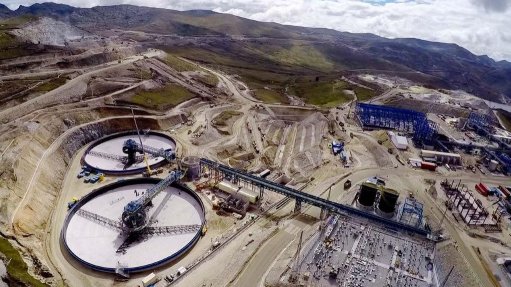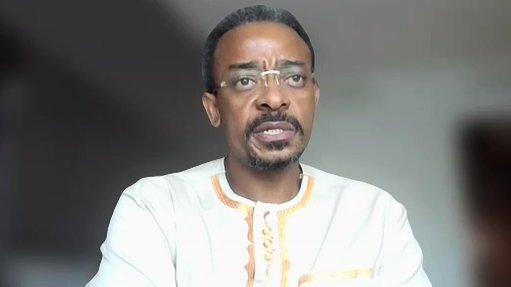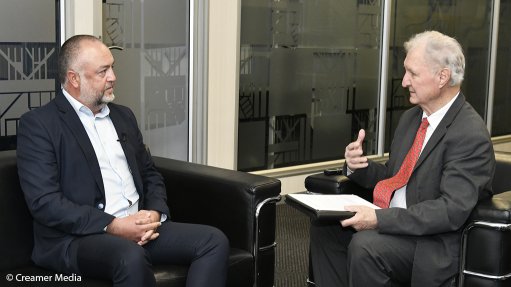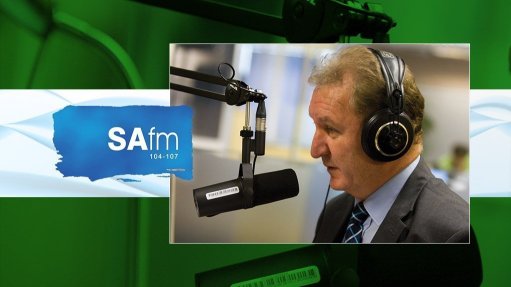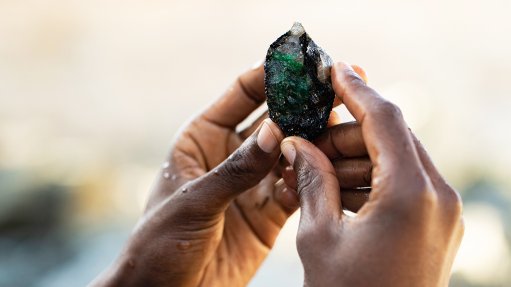The fight over Ghana’s illegal gold rush exposes election risks
There’s no escaping gold in Tarkwa. It’s in the forest. It’s under your feet as you walk the streets of Ghana’s biggest mining town. It’s the economy. Exposed holes in the ground bear witness to attempts at illegally digging out some of the precious metal and a polluted river on the edge of town shows the consequences of the boom in semi-industrial scale mining.
The environmental damage has triggered a wave of protest in the capital Accra demanding a ban on all small-scale mining operations in places like Tarkwa. In turn, anxious local politicians — ahead of national elections on Dec. 7 — have tried to reassure registered mines that they will be shielded from the government’s threat to crack down on illegal activities, which it calls “galamsey”.
“In Accra, they want to ban you, but I’m here to tell you that I support miners,” George Mireku Duker, the deputy mining minister and a local legislator, told managers at four underground mines during site visits in October. Duker acknowledges that illegal mining is a “worry”, but he knows that a voter backlash against the New Patriotic Party government which he is part of could cost him his job on Dec. 7. He won the seat by just 101 votes in 2020.
“The small-scale mining sector employs more than 1 million Ghanaians and large-scale mines employ less than 10 000,” Duker told Bloomberg News. “You want to take their livelihood from them?”
The mines visited by Duker have existed since colonial times and are now operated either privately or for community use by Ghanaians to counterbalance the foreign grip on large-scale mining in the indebted West African country. These artisanal and small-scale (ASM) mines — defined as operations on an area smaller than 25 acres — produced more than a quarter of the four million ounces of gold Ghana officially mined in 2023, estimated to be worth $10.6-billion at today’s prices, up from 10% in 2012.
Equipped with heavy machinery and turbocharged by lax regulation, the ASM sector remains largely informal: by some estimates, as many as 70% of these mines — which have mushroomed in places like Tarkwa — are unregulated.
The illicit gold rush is being powered by surging prices — up by more than a third this year to a record-high of $2 787 an ounce in October — and willing buyers in Dubai and beyond. The impact in Tarkwa is visible: tents at the top of slopes, with threadbare clothes hanging over wood panels hide the activities of a mine at the heart of the town while young men loiter outside Chinese machinery shops, offering their services as operators in exchange for a share of what is found in the rivers.
The line between legal and illegal operators is often blurred. “A lot of people do have a license,” says Ishmael Quaicoe, head of the environmental and safety engineering department at Tarkwa’s University of Mines and Technology, “but their operations don’t conform with what the law asks them to do.”
Demonstrations in September and October focused on the impact of galamsey miners. But when the Trades Union Congress threw its weight behind the campaign it raised the stakes, calling for an outright ban on all small-scale gold mining to halt activity blamed for polluting rivers — one Ghana Water Company facility said in August that 60% of the raw water it treated was affected by illegal mining, depressing cocoa production and destroying forests.
Both main political groups — the governing NPP and the opposition National Democratic Congress —have traded accusations over the mining issue. And with elections around the corner President Nana Akufo-Addo responded to the calls for a ban by threatening to send soldiers to mining towns to crack down on galamsey operations.
He has yet to follow through on that pledge, but the announcement triggered memories of a heavy-handed effort to close down illegal mining in 2017. The ban on ASM mining lasted about two years, but the move backfired on the government, with allies citing it as one of the reasons for the loss of its parliamentary majority in the 2020 elections.
At least 4.5 million people — workers and dependents — rely on gold for their livelihood, according to a 2020 government estimate. So the timing of the protests has created a dilemma for the NPP which polls suggest could be headed for its worst-ever election results on Dec. 7, according to the Accra-based Global Analytics.
For all its mineral wealth, almost 20% of people in Tarkwa-Nsuaem municipality — Duker’s constituency — live in acute poverty, facing multiple deprivations from a lack of clean water to decent shelter, according to the Ghana Statistical Service. A shortage of educational opportunities means young people often gravitate toward the ASM sector’s low-skilled and often dangerous jobs.
“They are already dying from poverty so they don’t hear you when you talk about the dangers of mercury or cyanide,” says Elorm Ama Governor-Ababio who was arrested while participating in a protest by Democracy Hub — the activist organization — in Accra. “You put them through so much trauma that when they see a literal threat to their life they see it as a beacon of hope,” adds Governor-Ababio, who denies any wrongdoing.
MAKING THE GOOD DELIVERY LIST
School children in Ghana are taught that their country — known as the Gold Coast since British colonial rule — is so rich in the precious metal that the sand glistened as the first Europeans approached shore in the 15th century.
In those early days, Akan traders bartered their gold dust for European alcohol, copper and even clothing. Centuries later Ghana remains Africa’s biggest producer, with major operators such as the UK-based Anglogold Ashanti, Gold Fields from South Africa, American miner Newmont Corp and China’s Chifeng Jilong Gold Mining Co all active.
At the other end of the scale are the ASM operators. Adwoa Pokuaa Boaduo, a mining engineer who wrote a doctoral thesis on the potential for artisanal and small-scale mining reform in Ghana, says a lack of compliance checks makes it relatively easy for licensed gold buyers to purchase from illegal mines, legitimizing their output.
Rosemary Addico, who leads the responsible gold program at Solidaridad’s West Africa — an NGO which encourages miners to follow global best practices — believes the onus should be on the buyers to scrutinize the source: “Once international buyers insist on some requirements, the traders will be more careful about where they are sourcing gold from and how it’s mined.”
For gold to be accepted by the world’s most demanding buyers, including central banks, institutional investors and luxury brands, it must come from refiners on the London Bullion Market Association’s Good Delivery List. The influential trade body doesn’t certify mines, but does make the refiners it accredits responsible for the gold in their supply chains, leaving many loath to accept anything directly from small-scale producers that could jeopardize their place on the list.
There are, however, plenty of other willing buyers of Ghanaian gold with few questions asked. Nana Akwuasi Awuah, the head of the state-owned gold marketing company — and a number of market participants — say metal from the smaller illegal mines often ends up with Dubai refineries. None of these are on the LBMA’s Good Delivery List, though the emirate does have rules requiring refiners to check that gold has been sourced responsibly.
Once imported, the gold can be re-refined and sold as “recycled” bullion to jewelers in India and other markets further east, and even LBMA-accredited refiners, without reference to its origin. The LBMA requires refiners to conduct checks to ensure gold is sourced responsibly, but the reality is that the provenance of recycled gold can be very difficult to determine, according to a 2022 study published on the trade association’s website.
Illegal mining also carries an economic cost for Ghana, which is wrestling with more than $30-billion of external debt and secured a $3-billion bailout from the International Monetary Fund last year.
If the industry was formalized, Ghana would earn more than double its revenue from gold this year, according to Martin Ayisi, the chief executive officer of Ghana’s Minerals Commission, which regulates large and small miners. At least three-quarters of the country’s artisanal and small-scale gold output isn’t captured in export figures at all, he estimates. That’s because it’s either smuggled out by land to neighboring Ivory Coast, Togo and Burkina Faso, which have a lower withholding tax on unprocessed gold, or it’s treated as a transshipment from one of these countries through Ghana, even though it was mined in Ghana all along.
“There are all sorts of schemes to smuggle out the gold,” says Ayisi. “There’s one way to stop it, by further dropping the tax,” which was cut to 1.5% from 3% in 2022, driving an immediate spike in Ghana’s output.
THE DUBAI CONNECTION
In 2023, the United Arab Emirates reported that $3.2-billion of gold (52.9 metric tons net weight) was imported from Ghana. That same year, Ghana reported exporting just $1.7-billion of the metal to the UAE (27.8 metric tons net weight), according to the United Nations’ Comtrade Database. That amounts to a shortfall about $1.5-billion.
Dubai — one of the seven emirates that make up the UAE — has no gold mines, and has positioned itself as a hub for the metal. The LBMA considers the UAE a high-risk jurisdiction and imposes additional checks for any gold sourced from there.
But Safeya AlSafi, the UAE’s acting assistant undersecretary for commercial control and governance at the Ministry of Economy, told Bloomberg News that the shortfall could be due to incorrect information from the country of origin, adding, “I don’t know exactly if there is any actual smuggling. We have a very strict system.”
At the Minerals Commission, Ayisi acknowledged challenges recording what leaves Ghana.
Ghana was one of the first countries in Africa to legalize artisanal and small-scale mining, a sector which globally contributes about a fifth of the world’s gold supply, according to a World Gold Council report. Today, most officials agree that further formalization is essential to curb smuggling and reverse the environmental fallout.
The country has now joined a pilot program — along with Peru, the Philippines and Tanzania — to pre-approve some small-scale mines and sell their gold directly to refiners certified by the LBMA. But the lack of financial incentives to operate responsibly gives the miners little reason to join the pilot, critics say.
The LBMA is partly motivated by a desire to secure more “clean” gold for its refiners, who are effectively losing out on a fifth of the global supply because of its stringent sourcing requirements. For governments it means they can sell directly to LBMA refineries, opening up a more formal market for their gold.
“Will we solve all of the evils of the world?,” asks Neil Harby, the LBMA’s chief technical officer. “No, but we’ve got to start somewhere.”
Back in Accra, one of just three of Ghana’s 16 regions that doesn’t produce gold, the anti-galamsey movement is gaining momentum even if the protests have died down as the election focus has shifted to the economy — with inflation above 20% for more than a year — and a lack of jobs, in the country of 34 million. Billboard-sized images of brown rivers and reports of birth defects, allegedly linked to galamsey, have left voters with graphic images of the damage.
Yet neither of the two main parties is in a position to fully capitalize on the anti-ASM anger. Both have at different times clamped down on illegal mining but have also have financially benefitted from “illegalities in the small-scale mining sector,” according to a 2021 report by a former environment minister, Kwabena Frimpong-Boateng.
In 2022 Ghana passed a law that authorized mining in forest reserves earmarked for conservation. Out of these mining licenses, at least four have been granted by the government in reserves given special status due to their rare flora and fauna, according to The Fourth Estate, an investigative project by Ghanaian journalists.
The Frimpong-Boateng report, which accused politicians on both sides of having a conflict of interest, was dismissed by the presidency as lacking evidence. But it prompted a probe by Ghana’s Commission on Human Rights and Administrative Justice that is continuing.
“For about two decades now, parties have been rewarding their loyalists with concessions,” says E. Gyimah-Boadi, founder of the Accra-based non-partisan research network, Afrobarometer. “They are not going to expose themselves by committing to doing anything that will tie their hands.”
Richard Ahiagbah, the director of communications at the NPP rejects the claim, saying that the 2017 ban, shows the government is committed to clamping down on the ASM sector. The NDC also denies any conflict of interest during their own time in office. Samuel Gyamfi, the party’s national communications officer, described the environmental crisis as “unprecedented” and blamed the NPP for it.
For Dora Kowfia, a 54-year-old former artisanal miner, it is a confusing moment. She has has previously backed the NPP, but says that this time she doesn’t know who to vote for. She now sells textile at a roadside stall outside Tarkwa, overlooking the Bonsa river, where the impact of illegal mining is visible in the brown waters.
Asked if she was concerned about the pollution, Kowfia, echoing a widely held view in mining communities in Ghana, says: “Accra is saying ‘stop galamsey’. I want leaders who will either protect it or bring us new jobs.”
Comments
Announcements
What's On
Subscribe to improve your user experience...
Option 1 (equivalent of R125 a month):
Receive a weekly copy of Creamer Media's Engineering News & Mining Weekly magazine
(print copy for those in South Africa and e-magazine for those outside of South Africa)
Receive daily email newsletters
Access to full search results
Access archive of magazine back copies
Access to Projects in Progress
Access to ONE Research Report of your choice in PDF format
Option 2 (equivalent of R375 a month):
All benefits from Option 1
PLUS
Access to Creamer Media's Research Channel Africa for ALL Research Reports, in PDF format, on various industrial and mining sectors
including Electricity; Water; Energy Transition; Hydrogen; Roads, Rail and Ports; Coal; Gold; Platinum; Battery Metals; etc.
Already a subscriber?
Forgotten your password?
Receive weekly copy of Creamer Media's Engineering News & Mining Weekly magazine (print copy for those in South Africa and e-magazine for those outside of South Africa)
➕
Recieve daily email newsletters
➕
Access to full search results
➕
Access archive of magazine back copies
➕
Access to Projects in Progress
➕
Access to ONE Research Report of your choice in PDF format
RESEARCH CHANNEL AFRICA
R4500 (equivalent of R375 a month)
SUBSCRIBEAll benefits from Option 1
➕
Access to Creamer Media's Research Channel Africa for ALL Research Reports on various industrial and mining sectors, in PDF format, including on:
Electricity
➕
Water
➕
Energy Transition
➕
Hydrogen
➕
Roads, Rail and Ports
➕
Coal
➕
Gold
➕
Platinum
➕
Battery Metals
➕
etc.
Receive all benefits from Option 1 or Option 2 delivered to numerous people at your company
➕
Multiple User names and Passwords for simultaneous log-ins
➕
Intranet integration access to all in your organisation



